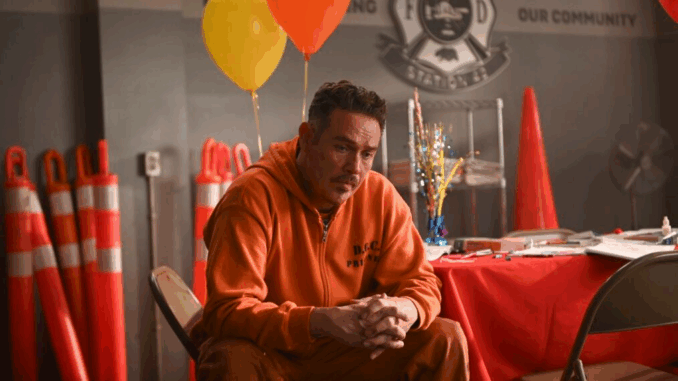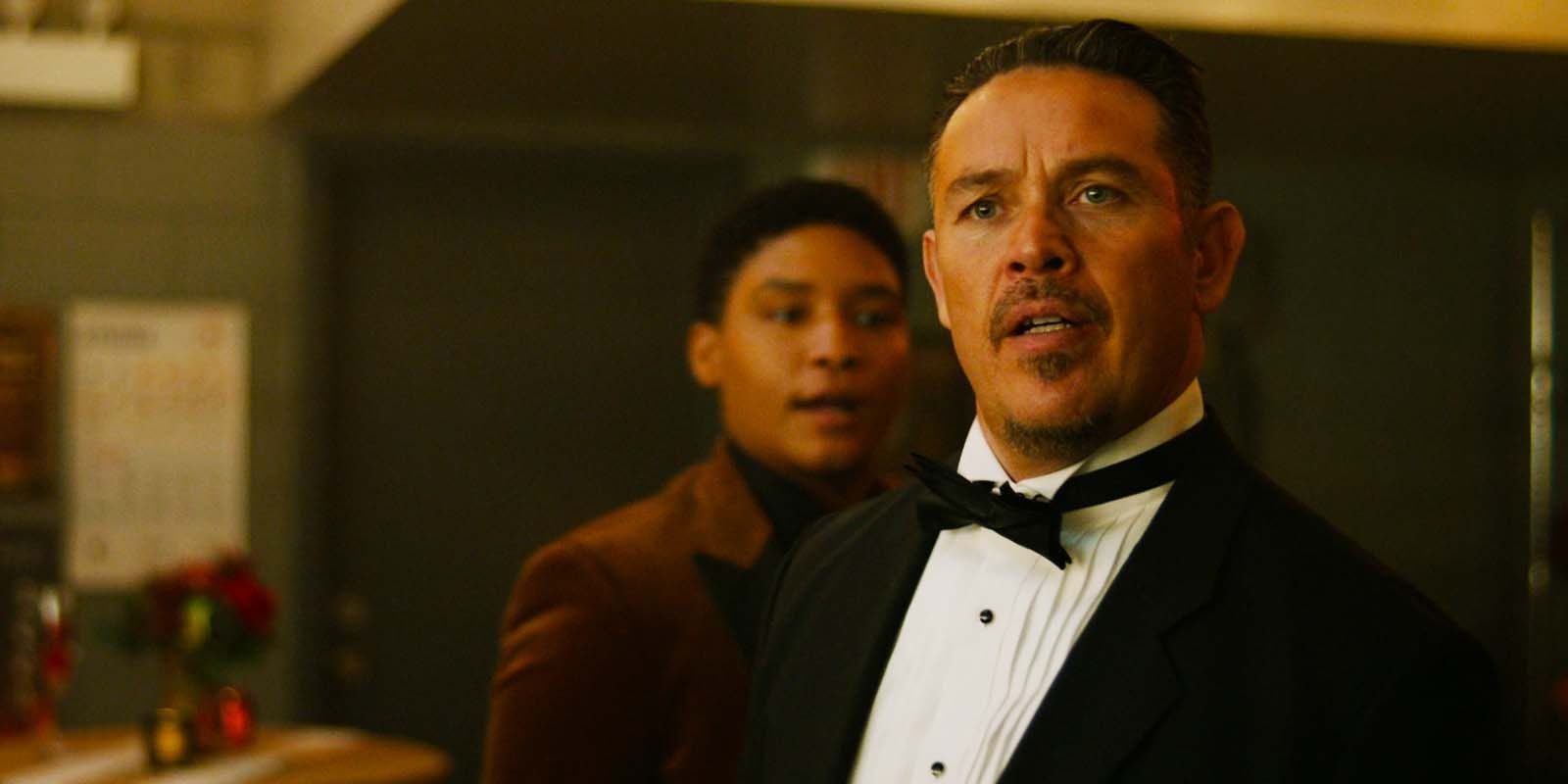
From Leader to Liability
When Fire Country first introduced Manny Perez, he stood as a symbol of strength—Cal Fire captain, devoted father, and mentor to some of the most damaged souls in Edgewater. But as the seasons unfolded, so too did the fractures beneath the surface. Gambling addiction. Ethical lapses. An inability to reconcile pride with accountability.
By Season 3, Manny was no longer a respected leader—he was a man trying to keep his life from falling apart.
And now, with the fallout from the Three Rock toxic waste scandal, the departure of his daughter Gabriela, and the institutional upheaval following Vince Leone’s death, Manny finds himself dangerously close to the edge.
Can he reclaim his place in Cal Fire—or has his final chance already slipped through his fingers?
The Father Who Lost His Daughter Without Losing Her Life
Of all the relationships in Fire Country, few are as emotionally gut-wrenching as the bond between Manny and Gabriela. For years, he raised her as a single father, trying to give her a future he never had. But in doing so, he placed her on a pedestal so high she could barely breathe.
Manny’s love was real—but so was his control. When Gabriela fell in love with Bode, Manny’s reaction wasn’t protective—it was possessive. And when she tried to carve out space for herself, he mistook it for betrayal.
The true tragedy came not in a blow-up argument, but in quiet disappointment. When Gabriela left Edgewater in Season 3, it wasn’t to punish Manny—it was to save herself. “I can’t live here anymore,” she told him. What she didn’t say was: “I can’t live under your shadow.”
This silent rejection devastated Manny more than prison ever did. His greatest fear had come true: he didn’t lose Gabriela to death, but to distance—and he has no idea how to bring her back.
The Weight of the Three Rock Cover-Up

Manny was once the heart of the Three Rock inmate program. He believed in second chances because he needed one himself. He fought for men like Bode and Freddy not just as a supervisor, but as someone who saw himself in their mistakes.
But when toxic waste was discovered beneath the camp’s soil—and sickened those he swore to protect—Manny signed the NDA. He didn’t do it for money. He didn’t do it for politics. He did it because he believed that protecting the camp’s existence, even through silence, was better than watching it be shut down.
But silence is not redemption. And now, that choice haunts him.
The community feels betrayed. The inmates feel used. And Bode—the closest thing Manny has to a son—may never forgive him.
Season 4 will place Manny in the hot seat: facing legal scrutiny, moral condemnation, and possible dismissal from Cal Fire. Whether he survives will depend not on his strength—but on his ability to admit he was wrong.
Pride as a Poison
What defines Manny Perez more than anything is pride. It’s what got him into trouble as a gambler. It’s what kept him from apologizing to Gabriela until it was too late. And it’s what makes him a man who only knows how to fight, never how to yield.
Season 4 must confront this directly. Manny has to learn that pride cannot fix what it breaks. That leadership is not just about commanding others, but about acknowledging failure.
He must either shed the armor—or be crushed under its weight.
Redemption Through Vulnerability
The path forward for Manny cannot be paved with rank or seniority. It must be paved with humility.
This may mean:
-
Publicly testifying against Cal Fire’s complicity in the Three Rock scandal
-
Reaching out to Gabriela, not to ask her to return, but to offer a true apology without strings
-
Mentoring a young firefighter who challenges his outdated methods
-
Resigning from leadership and working his way back as a crew member—not a boss
This kind of story would be rare—and powerful. A man who doesn’t fight his way back to the top, but who rebuilds from the bottom, one honest moment at a time.
An Ally or an Enemy to Bode?
Perhaps the most uncertain relationship in Season 4 will be Manny and Bode. Once close, their bond was strained by Manny’s increasingly poor decisions—and nearly severed after the NDA scandal.
Bode, driven by principle, sees Manny’s silence as betrayal. Manny, driven by pragmatism, sees Bode’s idealism as naivety. And yet, they still share something unbreakable: belief in the possibility of redemption.
Whether they clash or reconcile will define a major emotional arc of Season 4.
Imagine Manny showing up to defend Bode at a public hearing. Or Bode confronting Manny at Vince’s memorial. These are the scenes that Fire Country can use to explore what forgiveness really costs.
Sharon Leone: The Only One Who Still Sees Him
In the aftermath of Vince’s death, Sharon and Manny’s bond may become more central than ever. Both have lost someone. Both feel responsible. Both signed the same NDA. And both are now isolated, grieving, and uncertain of their place.
Sharon may be the only person left who sees Manny as a man trying—failing, yes—but trying. Whether she chooses to protect him or hold him accountable will shape her leadership arc just as much as his.
Together, they could either be the last defenders of a broken system—or its most necessary critics.
Conclusion: A Man at War With Himself
Manny Perez is not a hero in the traditional sense. He’s made too many mistakes. Let too many people down. But he remains one of the show’s most compelling characters because he reflects something rare in television:
A man who cannot hide behind trauma, because he caused much of it himself.
His journey is not about survival. It’s about reckoning. And if Fire Country is willing to go there, Season 4 could show something far more powerful than redemption:
Accountability. Earned, not given.
Because maybe the real measure of a man is not how many fires he puts out.
But how many he’s willing to walk through—alone, if he must—just to make things right.
